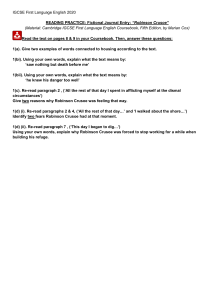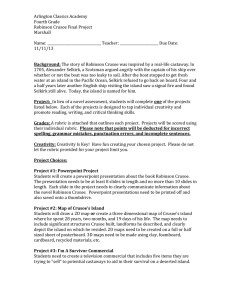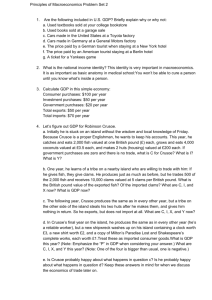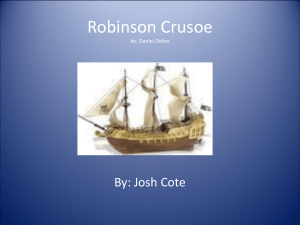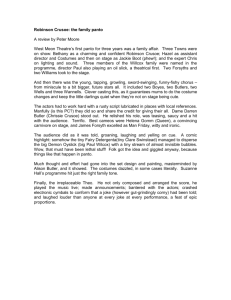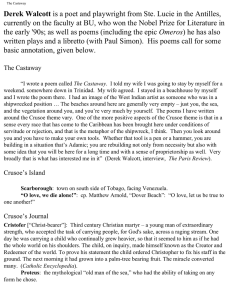Robinson Crusoe: Survival, Intelligence, and Optimism
advertisement
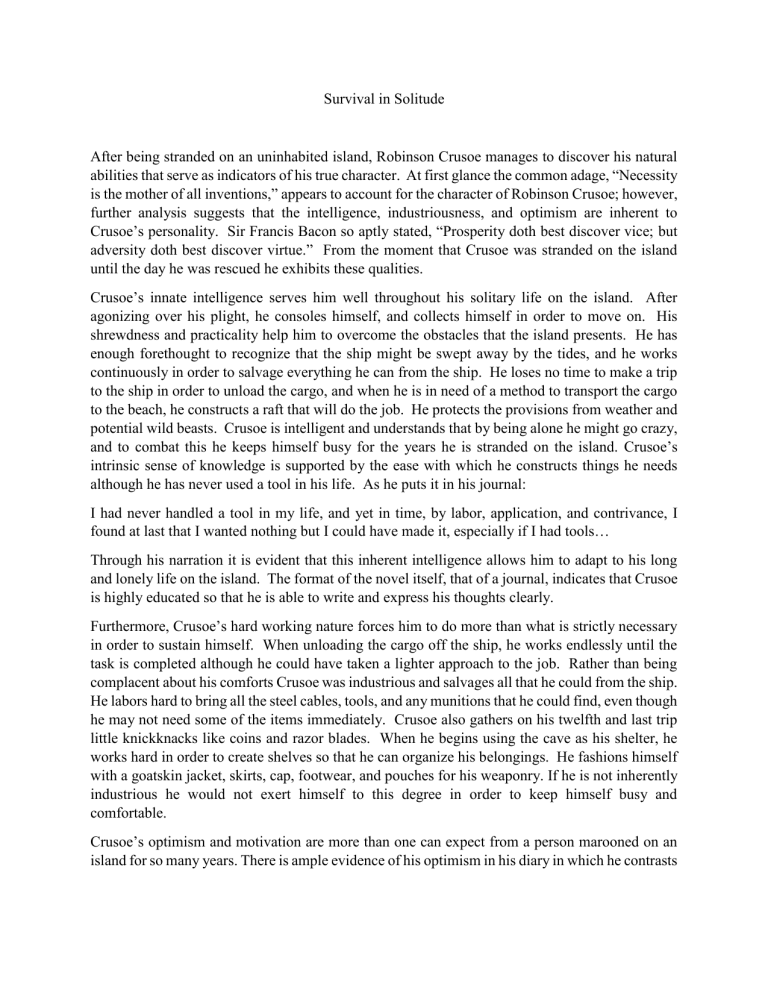
Survival in Solitude After being stranded on an uninhabited island, Robinson Crusoe manages to discover his natural abilities that serve as indicators of his true character. At first glance the common adage, “Necessity is the mother of all inventions,” appears to account for the character of Robinson Crusoe; however, further analysis suggests that the intelligence, industriousness, and optimism are inherent to Crusoe’s personality. Sir Francis Bacon so aptly stated, “Prosperity doth best discover vice; but adversity doth best discover virtue.” From the moment that Crusoe was stranded on the island until the day he was rescued he exhibits these qualities. Crusoe’s innate intelligence serves him well throughout his solitary life on the island. After agonizing over his plight, he consoles himself, and collects himself in order to move on. His shrewdness and practicality help him to overcome the obstacles that the island presents. He has enough forethought to recognize that the ship might be swept away by the tides, and he works continuously in order to salvage everything he can from the ship. He loses no time to make a trip to the ship in order to unload the cargo, and when he is in need of a method to transport the cargo to the beach, he constructs a raft that will do the job. He protects the provisions from weather and potential wild beasts. Crusoe is intelligent and understands that by being alone he might go crazy, and to combat this he keeps himself busy for the years he is stranded on the island. Crusoe’s intrinsic sense of knowledge is supported by the ease with which he constructs things he needs although he has never used a tool in his life. As he puts it in his journal: I had never handled a tool in my life, and yet in time, by labor, application, and contrivance, I found at last that I wanted nothing but I could have made it, especially if I had tools… Through his narration it is evident that this inherent intelligence allows him to adapt to his long and lonely life on the island. The format of the novel itself, that of a journal, indicates that Crusoe is highly educated so that he is able to write and express his thoughts clearly. Furthermore, Crusoe’s hard working nature forces him to do more than what is strictly necessary in order to sustain himself. When unloading the cargo off the ship, he works endlessly until the task is completed although he could have taken a lighter approach to the job. Rather than being complacent about his comforts Crusoe was industrious and salvages all that he could from the ship. He labors hard to bring all the steel cables, tools, and any munitions that he could find, even though he may not need some of the items immediately. Crusoe also gathers on his twelfth and last trip little knickknacks like coins and razor blades. When he begins using the cave as his shelter, he works hard in order to create shelves so that he can organize his belongings. He fashions himself with a goatskin jacket, skirts, cap, footwear, and pouches for his weaponry. If he is not inherently industrious he would not exert himself to this degree in order to keep himself busy and comfortable. Crusoe’s optimism and motivation are more than one can expect from a person marooned on an island for so many years. There is ample evidence of his optimism in his diary in which he contrasts good against evil, and ultimately views things in a more positive light. A brief excerpt from his diary is: I am cast upon a horrible desolate island, void of all hope of recovery. But I am alive, and not drowned as all my ships company was. But I am in a hot climate, where if I had clothes I could hardly where them. He overcomes the despair and disappointment he feels after staring at the horizon for a ship to pass by motivating himself to improve his habitat. He also makes a chair and a table to enjoy the few comforts that he does have.
